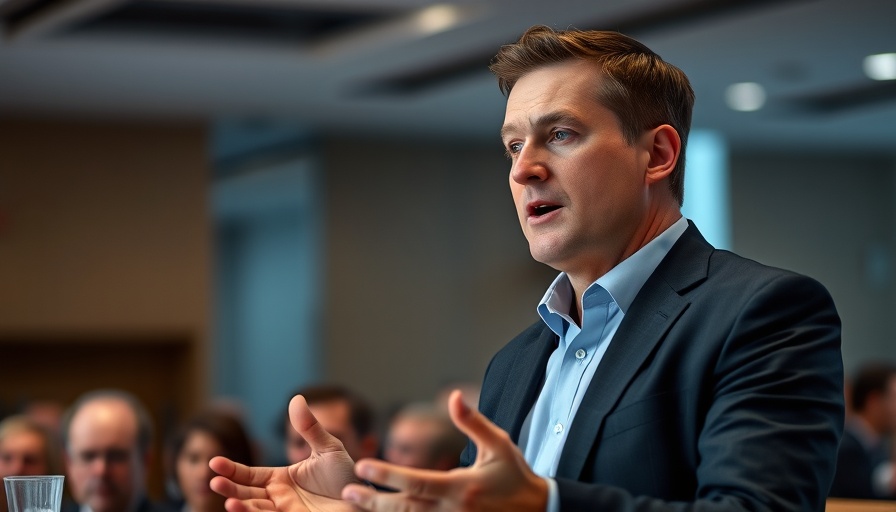
Elon Musk Faces Setback in Legal Battle with OpenAI
A federal judge has delivered a significant ruling affecting the future of one of the AI industry’s powerhouse organizations. On March 4, 2025, U.S. District Judge Yvonne Gonzalez Rogers dismissed Elon Musk's attempt to halt OpenAI’s transition to a for-profit entity, marking a pivotal moment in the ongoing legal saga involving the tech mogul and the organization he co-founded. While Musk's lawsuit claims that OpenAI has strayed from its original nonprofit mission and breached fiduciary duties, the judge found that he had failed to show sufficient proof of immediate harm.
The Legal Landscape: Musk's Allegations and the Court's Response
This judicial decision opens the door for OpenAI to full throttle its plans to operate as a profit-driven enterprise, despite Musk’s vocal criticisms and legal actions. Musk originally filed his lawsuit in March 2024, claiming OpenAI was betraying its fundamental goals as a nonprofit and engaging in anticompetitive practices. The lawsuit has seen multiple revisions, including a preliminary injunction aimed at freezing OpenAI's for-profit endeavors, which was flatly denied by Judge Gonzalez Rogers.
Citing a lack of adequate justification for Musk’s claims, she stated that his investment strategy, which includes a recent $97.4 billion bid for the organization, undermines his assertions of anticipated harm. Thus, the judge’s ruling not only represents a setback for Musk but also reinforces OpenAI's current operational model under CEO Sam Altman.
The Implications for AI Development and Ethics
This court ruling is significant beyond the parties involved; it raises critical questions about the trajectory of artificial intelligence advancements and ethical considerations surrounding them. With OpenAI set to capitalize on its recent successes — including the deployment of its popular ChatGPT technology — the shift to a for-profit model may pave the way for more extensive research funding and product development. However, skeptics question whether such a transition could lead to monopolistic behavior in the rapidly evolving AI landscape.
Musk and OpenAI: A Complicated History
The history between Musk and OpenAI is fraught with conflict, as Musk was once a staunch supporter and investor in the organization, putting forward approximately $45 million since its inception. Recent court documents revealed that Musk even proposed integrating OpenAI into his Tesla operations, a move that would have significantly benefited his personal ventures but raised ethical concerns regarding the primary mission of OpenAI.
OpenAI has responded robustly to Musk's allegations, asserting that the real issue at hand is competition, not ethics. They allege that Musk's efforts stem more from his rivalry with the organization and his ongoing development of xAI, a competing AI company. This perspective highlights the competitive and adversarial nature of technological advancements and raises essential questions about the balance between innovation and ethical practices.
Future Court Proceedings: A Chance for Resolution?
Judge Gonzalez Rogers has indicated her willingness to expedite further proceedings regarding Musk's lawsuit, emphasizing the public interest at stake. Should Musk choose to narrow his claims, the court may hold a trial as soon as fall 2025.
This upcoming trial could clarify contentious issues surrounding AI ethics, business practices, and the responsibilities of AI organizations to their original missions and stakeholders. As these further developments unfold, the tech industry will be monitoring closely. The outcome could potentially reshape the operational frameworks for nonprofits transitioning into for-profit models, especially in technologically sensitive fields like artificial intelligence.
Conclusion: A Call for Ethical Considerations Amid Innovation
The recent ruling serves as a reminder of the complexities entwined in the rapidly evolving AI landscape, where innovation and ethics often collide. Whether or not Musk successfully adjusts his legal strategy to impose limits on OpenAI’s activities, this case presents a unique opportunity to discuss the implications of AI advancements in society. Readers are encouraged to explore the broader impacts of for-profit motives within nonprofit origins and the intricacies at play in the evolving AI industry.
 Add Row
Add Row  Add
Add 




 Add Row
Add Row  Add
Add 

Write A Comment